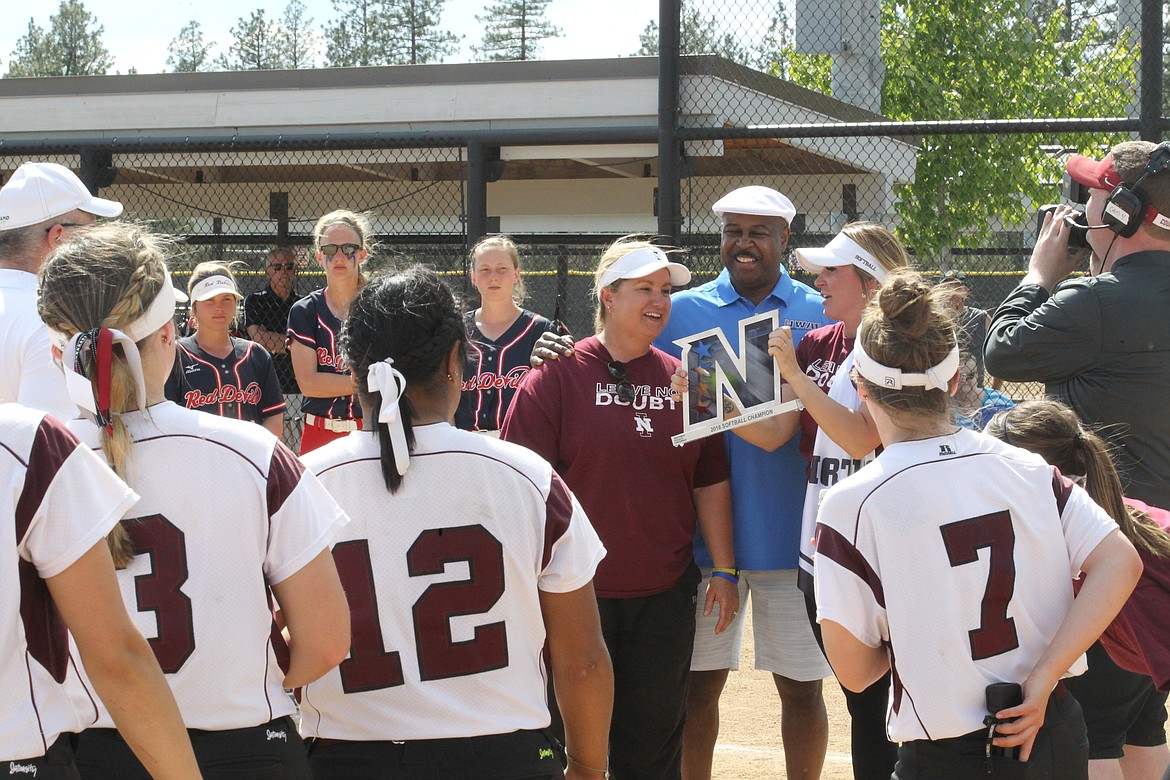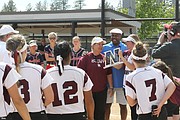Big Al, uninterrupted
First of two parts
From the rough south side of Chicago, a young Al Williams came to North Idaho College to study and play basketball. From there he landed a scholarship and contributed to perhaps the best team in University of Idaho's history.
Years later, Williams came full circle back to Coeur d'Alene, where he served as athletic director and unofficial ambassador from 2003 to 2019.
His departure was publicized as a retirement, but Williams says that wasn't exactly the case. Now, as his alma mater faces unprecedented scrutiny and an uncertain future, Williams agreed to discuss what happened — and share some of his views on the school and community he still loves.
This interview has been edited for length.
PRESS: Al, when you left North Idaho College in September 2019, it was announced as a retirement. At that point how did you feel about leaving, and looking back, how do you feel about it now?
AL WILLIAMS: That’s two and half years ago. I left with mixed emotions because I felt like I wasn’t leaving by choice. It was like I was almost in a position where I was perceived to be part of a problem on the college campus dealing with the whole NWAC [conference complaint] situation. So it was difficult to leave when you know that the truth isn’t out there as far as why you’re leaving.
Granted it would have been nice to retire at that time, but I wasn’t ready to retire. I was planning to retire two years after that. So when I actually left it was early retirement. I was retiring for the wrong reason - there were things I still wanted to do with the college. And because of outside information that made it seem that the athletic department was in disarray, there was a decision that they wanted to make a change and I was going to be part of that change.
So that’s why I decided to retire rather than go through the whole fight to maintain my job. I walked away from it and in hindsight, I wish I would have done more to get the message out as to why I’m leaving, as opposed to just walking away and saying, ‘OK, I don’t feel like fighting this battle.’
I didn’t feel comfortable as to why I was leaving, but I thought it’s best to do this now as opposed to making this be a public issue with the college and put it in the position where this could be a bigger issue than it was. I thought that I could hopefully help them resolve some of the issues that were perceived from the NWAC … because it was all smeared in the papers that we were doing things illegally and the booster club was being put in the forefront of that, and the problem was that nobody got to hear the message why I really was leaving and the perception that we had done things wrong was floated on our campus and by our board of trustees and that we had to settle these penalties and accepted them because we had no recourse.
PRESS: What was the problem?
AL: It was perceived that a change was needed. And it would have been easier to advise the league that we were in that we were making changes based upon these allegations that were out there, that we were making internal changes. And that was the only way they could put that across to the conference, that we understand there are some issues, we are going to resolve these issues, and we think that a change would make it a better way to accept NIC saying that ‘We hear you, we are going to make some changes, we are going to make some internal policy changes, internal personnel changes, so you can see we want to do things right by NWAC standards.’
PRESS: So were you sacrificed?
AL: Yes, I was. And the sad thing about it is that if we had done things that I believed were wrong and I had put us in that position, then I would have totally said, ‘Yeah, you’re right. It shouldn’t have happened this way.’ But the bottom line is we had done things appropriately, we had put in policies to adhere to a conference that had a whole different set of philosophies than we had previously, but we were using their guidelines. Because they were so vague, we used them best for our department and because they benefited us they thought it was not legitimate how we handled the policies they had in the conference.
They were so vague in their rules … We verified so many of the things with their compliance officer who was there at the time, and we had it documented how we were doing things, explained to him ‘here’s the process,’ gave him the documentation of how we were collecting money from all the student athletes. And he died. And so it wasn’t until after this person died whom we’d worked with, who was our compliance officer for three years we’d been in the league at that point, that anyone had questioned things we had in place.
… The bottom line is that we were only accepted in the conference because they wanted to bring us down to their level. … NIC was a power, NIC was going to win regardless of what rules were in place. We weren’t breaking their rules; we were just using them to our advantage, because they were so vague in how they had these rules set up.
… So when they put that out there to make us leave the conference, when they put that out there for these sanctions saying we’re in violation of the rules, they made these sanctions so egregious and so out of line, they said ‘There’s no way North Idaho would accept these rules. They’re going to leave.’ And that was their whole intention — to make this so outlandish. The financial penalty they put out there was higher than any other two-year school had been sanctioned with. No one had ever been told you’re going to pay a $30,000 fine for these violations. They had a template of penalties and the financial fines that go along with it, and the max they had in the NWAC was $2,000. And yet they found that our violations were worthy of meriting a $30,000 fine, having to forgo championships for basketball for two years, put them on probation for three years.
The whole idea, the whole intent of that, was that we aren’t going to accept that, we’re going to leave. And so everyone was shocked when NIC accepted these sanctions, and said ‘OK, we’re sorry, we’re going to adhere to your rules.’ And they turned the most successful two-year school to a shell of what it was, for the period I’d been here from 2003 to where they are right now. We were the model athletic program for the NJCAA, on the court, on the field, and in the classroom.
And now we’re a shell of what we were. And that’s the part I really feel bad about, not fighting to see that first of all NIC isn’t perceived at that level, that NIC is a tainted program. And that’s how I feel they got that projected to media, to the community that we were rule breakers and violators and that’s the part I regret, leaving without getting that part cleared up.
PRESS:You recently attended your first NIC basketball game in more than two years. How did that go?
AL: It was sad to see. Because when I left, our community support was so strong, our crowds were large, our pep band was there, our cheerleaders were there, the booster club presence for halftime was there, I mean the energy was there with our announcers — everything was high energy. And I went there [recently] and it was like a scrimmage — the atmosphere was like a scrimmage. And it was so sad to see. I saw a few familiar faces but for the most part it was nothing like it was when I left. And I walked in there and I almost didn’t recognize that atmosphere at all. It really felt like a scrimmage game. And it was the first time I’d been on the campus in two years since I retired.
It wasn’t the college that I left.
PRESS: I’m going to toss out some names and you tell me the first thing that comes to your mind.
Rick MacLennan, former president
AL: I’m glad he’s gone. I think a change was needed and that’s why I didn’t come back to the campus until he was gone.
That’s a tough one to describe. You know somebody for four years. I guess the biggest thing that hurt was I was a member of president’s cabinet, someone you would think whose opinion is valued, and my integrity was questioned to the point that the viewpoints of outsiders were taken over mine.
PRESS: Todd Banducci, NIC board chair
AL: Free spirit. I understand what he’s trying to do, I just don’t know that it’s best for the college. I don’t know how what he’s doing best reflects the role that is perceived with that position at the college.
PRESS: Michael Sebaaly, the interim president
AL: I think he’s a sharp individual. He’s got an extremely tough challenge. I think he wants to do the right thing. He’s got so many obstacles he’s got to face internally and externally, and it’s hard because people don’t really know him. So it’s going to be hard for him to get a fair shake on his ability to accomplish his job. Because the first thing people think about is a wrestling coach, as opposed to an educator with a doctorate in educational leadership.



